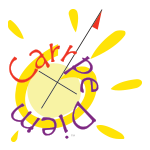Are You Lazy When It Comes To Trust?
Years ago, I facilitated a simple trust-building initiative for a large group, which opened a conversation on trust. Participants mingled, stopped, looked into another person’s eyes, and said either “I trust you” or “I don’t trust you.” There was no explanation of why they said what they said. They just moved on after their statement to someone else. After a couple of minutes, I asked people to stop and gather in a circle.
During the debrief, many participants expressed discomfort with the exercise. They reported feeling a range of emotions from shame and disappointment to anger and resentment. The debrief revealed a need to know and the risk of stepping into uncertainty.
How would you feel if someone walked up to you and said, “I don’t trust you.”? In today’s toxic, untrusting culture, a common response might be, “That’s your problem, not mine.”
I began the June 29th blog “Are You Lazy When It Comes to Critical Thinking?” acknowledging that the United States has indeed experienced a recent surge in productivity, driven by a combination of factors that have contributed to the rise in output per worker. I believe we have an epidemic of laziness.
I believe we have an epidemic of laziness in trusting others, trusting processes, and trusting visions.
Are you lazy when it comes to building bridges of trust? These questions require critical thinking and may give you clues:
- Is trust hardwired in us? Is trust natural?
- Trust is highly subjective and contextual. Does trust matter anymore, or is trust more important than ever?
- If you believe trust is vital, how do you prevent trust stagnation?
- Some say trust is a psychological state in which you express a willingness to be vulnerable. Do you have to be vulnerable to trust, or do you have to trust to be vulnerable?
- Is trust the conduit for dealing with the unknown, such as taking a vaccine, riding in a self-driving car, asking AI to make a decision for us, or walking onto a frozen pond?
- Is trust a process of intention, expectation, and behavior? Is trust a state of being? What are the benefits of trust?
- Are you trustworthy? What is your evidence?
Trust is the bridge between the known and unknown. Trust is a confident relationship with the unknown. At the heart of trust is placing our faith in someone or something, believing it is safe to take a risk. – Rachel Botsman
Everything begins with trust! According to child psychologist Erik Erikson, our exposure to trust begins with our parents and caregivers. Parents and caregivers play a crucial role in shaping their child’s perception and future relationships. Trust is built on affection, comfort, and feeding. Quick and consistent response to these three needs builds trust. Parents who exhibit inconsistent, unreliable, and unpredictable behaviors can lead to a lack of trust and confidence in their children. I believe that our early experiences with how our parents and caregivers treated us lay the foundation for the principles and core values we hold ourselves accountable for living by.
Global authority on trust, Rachel Botsman, says that while money is the currency of transactions, trust is the currency of interactions. Trust is highly subjective and contextual. We are being asked to take more “trust leaps” than ever before.
In relationships, trust isn’t a promise to never hurt each other. It’s the risk that we will hurt each other and the confidence that, if we do, we will come together to heal. Most importantly, trust requires taking risks together that help us grow into better partners for each other.- Esther Perel
Trust is created, built, and even regained when lost through transparency. Transparency is the key ingredient that makes the 12-Step Program work. The 12-Step Program serves as a guide for fostering better relationships and engaging in commUNITY. Participants must be transparent with one another. Transparency builds trust. Trust is at the heart of the 12-Step Program. 12-sep participants have to trust a higher power, a confidant, and finally the commUNITY. You do not have to be an alcoholic or addicted to something to learn, understand, and live the 12-Steps. If you want to explore the 12-Step Program, suggest reading Stephanie Covington’s A Woman’s Way Through the Twelve Steps or Dan Griffin’s A Man’s Way Through the Twelve Steps.
Are the leaders you are following in politics, business, or an organization transparent? What is your evidence? Do you trust them? Why or why not?
Are you transparent with others when you make a mistake and take responsibility for it? Are you transparent in admitting your limitations and seeking help? Are you transparent when you fail to keep a promise, apologize, and share how you will change that bad behavior? What habits do you need to change to build trust?




